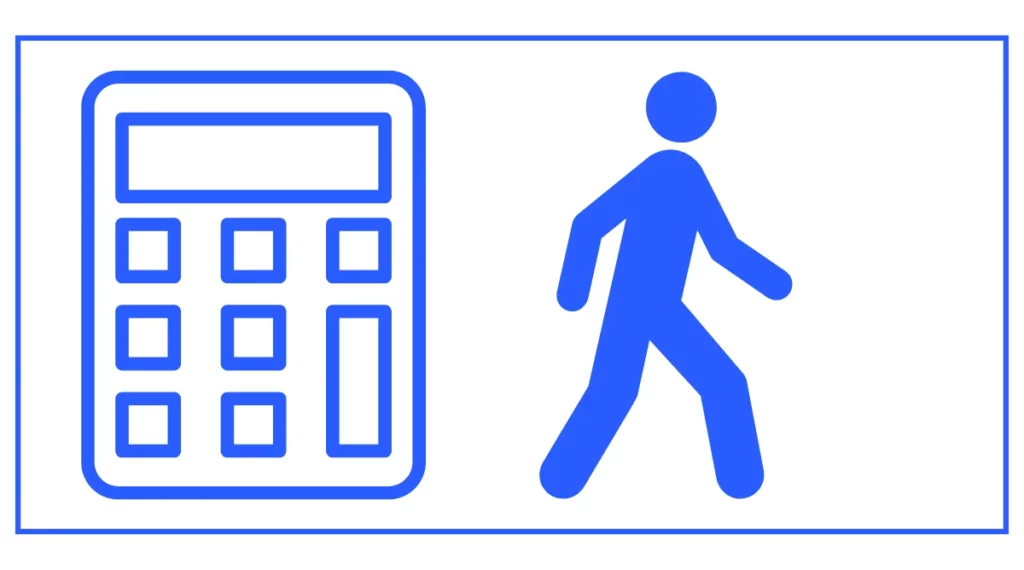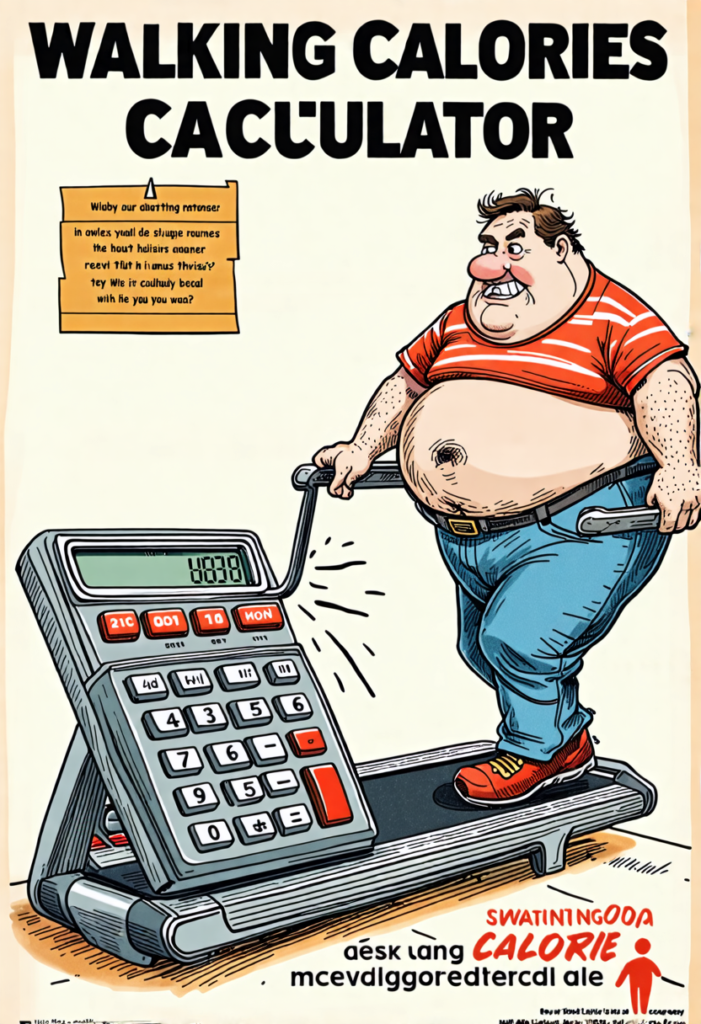Walking Calories Calculator
Calories Burned: 0
Do you want to calculate how many calories you burned by walking today?
Or do you plan to start walking more and are curious to find out how many calories you will be able to burn?
The walking calories calculator allows you to calculate the calories burned by walking. All you need to do is to enter your weight, walk duration, and walking speed. Here you go!
Start walking to burn calories!

You might want to find Goals Against Average, Steps To Calories, and Intermittent Fasting Calories.
Walking is an excellent form of exercise that can help you maintain a healthy lifestyle. One of the key benefits of walking is its ability to burn calories, which can contribute to weight management and overall fitness. But have you ever wondered how many calories you burn while walking?
Our walking calorie calculator is designed to help you estimate the number of calories burned during your walking sessions.
How to Use the Walking Calorie Calculator?
Using our walking calorie calculator is straightforward and user-friendly. Follow these simple steps to calculate your calorie burn:
- Enter your weight in pounds.
- Input the duration of your walk in minutes.
- Select your walking speed from the dropdown menu.
- Click the “Calculate” button.
The calculator will then provide you with an estimate of the calories burned during your walk.
Understanding the Factors That Affect Calorie Burn While Walking
Several factors influence the number of calories you burn while walking. Let’s explore these factors to better understand how the walking calorie calculator works:
Weight
Your weight plays a significant role in determining the number of calories burned while walking. Generally, a person who weighs more will burn more calories than someone who weighs less, given the same walking conditions. This is because it takes more energy to move a heavier body.
For example, a person weighing 200 pounds will burn more calories than someone who weighs 150 pounds when walking at the same speed for the same duration.
Walking Speed
The speed at which you walk has a direct impact on the number of calories burned. Walking at a faster pace increases your energy expenditure, resulting in a higher calorie burn. Our calculator offers four speed options:
- Slow (2.5 mph)
- Normal (3.0 mph)
- Fast (3.5 mph)
- Very Fast (4.0 mph)
As you increase your walking speed, you’ll notice that the calorie burn estimate rises accordingly.
Duration
The length of time you spend walking is another crucial factor in determining calorie burn. The longer you walk, the more calories you’ll burn. Our calculator allows you to input the duration of your walk in minutes, making it easy to estimate calorie burn for walks of various lengths.
The Science Behind the Walking Calorie Calculator
Our walking calorie calculator uses a formula based on metabolic equivalents (METs) to estimate calorie burn. A MET is a measure of the energy cost of physical activities. One MET is roughly equivalent to the amount of energy expended while sitting quietly.
The calculator uses the following equation to estimate calorie burn:
Calories Burned = (METs x 3.5 x weight in kg x duration in hours) / 200
The MET values used in our calculator are:
- 2.5 mph: 3.0 METs
- 3.0 mph: 3.5 METs
- 3.5 mph: 4.3 METs
- 4.0 mph: 5.0 METs
These values are based on data from the Compendium of Physical Activities, a widely recognized resource in the field of exercise science.
Interpreting Your Results
After using the walking calorie calculator, you’ll receive an estimate of the calories burned during your walk. It’s important to remember that this is an estimate and may not be 100% accurate for everyone. Factors such as individual metabolism, fitness level, and walking surface can all influence actual calorie burn.
Here’s a general guide to help you interpret your results:
- Low calorie burn (50-100 calories): This might be the result of a short walk at a slow pace.
- Moderate calorie burn (100-200 calories): This could represent a 30-minute walk at a normal pace for an average-weight individual.
- High calorie burn (200+ calories): This might indicate a longer walk, a faster pace, or a combination of both, especially for individuals with higher body weight.
Practical Applications of the Walking Calorie Calculator
Understanding your calorie burn while walking can be beneficial in several ways:
Weight Management
If you’re trying to lose weight or maintain your current weight, knowing how many calories you burn while walking can help you balance your energy intake and expenditure. For example, if you know that a 30-minute walk burns 150 calories, you can factor this into your daily calorie goals.
Fitness Tracking
For those who enjoy tracking their fitness progress, the walking calorie calculator can provide valuable data. You can use this information to set goals, monitor improvements, and stay motivated in your fitness journey.
Planning Exercise Routines
By understanding the calorie burn associated with different walking speeds and durations, you can plan your exercise routines more effectively. For instance, if you’re short on time but want to maximize calorie burn, you might choose to walk at a faster pace for a shorter duration.
Tips for Maximizing Calorie Burn While Walking
While the walking calorie calculator provides a good estimate of calories burned, there are ways to increase your calorie burn during walks:
- Incorporate intervals: Alternate between periods of brisk walking and slower-paced recovery.
- Walk uphill: Walking on an incline increases the intensity and calorie burn.
- Use hand weights: Carrying light weights while walking can increase overall energy expenditure.
- Extend your walking time: If possible, aim for longer walks to burn more calories.
- Increase your pace: As you build endurance, try to walk at faster speeds.
Health Benefits of Walking Beyond Calorie Burn
While burning calories is an important aspect of walking, it’s not the only benefit. Regular walking can contribute to overall health and well-being in numerous ways:
- Improved cardiovascular health
- Better blood sugar control
- Reduced risk of chronic diseases
- Enhanced mood and mental well-being
- Increased bone density
- Improved balance and coordination
Limitations of the Walking Calorie Calculator
While our walking calorie calculator provides a useful estimate, it’s important to understand its limitations:
- Individual variations: The calculator doesn’t account for factors like metabolism, body composition, or fitness level.
- Terrain: Walking on different surfaces (e.g., sand, grass) can affect calorie burn.
- Weather conditions: Walking in hot or cold weather may increase energy expenditure.
- Incline: The calculator assumes flat terrain, but walking uphill or downhill can significantly impact calorie burn.






